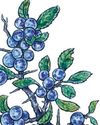
THEY have been an integral part of the countryside’s fabric for centuries and still play a vital role in our everyday lives, despite the advent of the satnav. We’re talking about fingerposts, the collection of (primarily) black-and-white signposts at junctions. Their sole purpose is to help us navigate our way along Britain’s complex network of roads and narrow country lanes where, let’s face it, it’s all too easy to get lost. Sadly, these items of road furniture are increasingly taken for granted and neglected, despite being a valuable part of our rural and cultural heritage.
When it comes to charting fingerpost history, there is a surprising dearth of information, although it’s claimed that our oldest known post dates to 1669, in Chipping Campden, Gloucestershire. The original is kept by a local history group; a replica stands in its place.
In terms of legislation, 1697 is the first notable date in the history books when some semblance of organisation started to emerge —or, at least, that was the intention. It became a requirement for markers to be placed at remote crossroads indicating the direction of the nearest town or village. At that time, parishes were responsible for maintaining long-distance routes between settlements, but, unfortunately, they were often forgotten and nothing more than pothole-ridden mud tracks.
この記事は Country Life UK の October 27, 2021 版に掲載されています。
7 日間の Magzter GOLD 無料トライアルを開始して、何千もの厳選されたプレミアム ストーリー、9,000 以上の雑誌や新聞にアクセスしてください。
すでに購読者です ? サインイン
この記事は Country Life UK の October 27, 2021 版に掲載されています。
7 日間の Magzter GOLD 無料トライアルを開始して、何千もの厳選されたプレミアム ストーリー、9,000 以上の雑誌や新聞にアクセスしてください。
すでに購読者です? サインイン

Kitchen garden cook - Apples
'Sweet and crisp, apples are the epitome of autumn flavour'

The original Mr Rochester
Three classic houses in North Yorkshire have come to the market; the owner of one inspired Charlotte Brontë to write Jane Eyre

Get it write
Desks, once akin to instruments of torture for scribes, have become cherished repositories of memories and secrets. Matthew Dennison charts their evolution

'Sloes hath ben my food'
A possible paint for the Picts and a definite culprit in tea fraud, the cheek-suckingly sour sloe's spiritual home is indisputably in gin, says John Wright

Souvenirs of greatness
FOR many years, some large boxes have been stored and forgotten in the dark recesses of the garage. Unpacked last week, the contents turned out to be pots: some, perhaps, nearing a century old—dense terracotta, of interesting provenance.

Plants for plants' sake
The garden at Hergest Croft, Herefordshire The home of Edward Banks The Banks family is synonymous with an extraordinary collection of trees and shrubs, many of which are presents from distinguished friends, garnered over two centuries. Be prepared to be amazed, says Charles Quest-Ritson

Capturing the castle
Seventy years after Christian Dior’s last fashion show in Scotland, the brand returned under creative director Maria Grazia Chiuri for a celebratory event honouring local craftsmanship, the beauty of the land and the Auld Alliance, explains Kim Parker

Nature's own cathedral
Our tallest native tree 'most lovely of all', the stately beech creates a shaded environment that few plants can survive. John Lewis-Stempel ventures into the enchanted woods

All that money could buy
A new book explores the lost riches of London's grand houses. Its author, Steven Brindle, looks at the residences of plutocrats built by the nouveaux riches of the late-Victorian and Edwardian ages

In with the old
Diamonds are meant to sparkle in candlelight, but many now gather dust in jewellery boxes. To wear them today, we may need to reimagine them, as Hetty Lintell discovers with her grandmother's jewellery